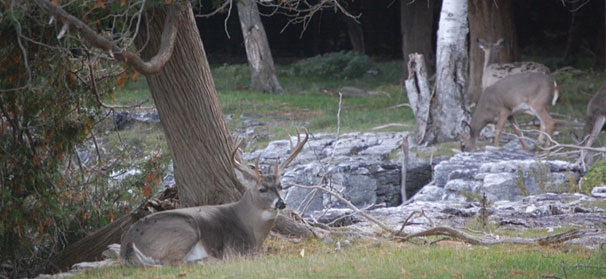
Jul 14, 2011Lifting of Michigan deer-baiting ban reopens market for growers
When Michigan Gov. Rick Snyder took office this year, he split the state Department of Natural Resources (DNR) and Department of Environmental Quality back into two separate offices, with new leadership. This laid the groundwork for the overturning of one of the most controversial decisions to come from DNR in recent years: The ban on baiting whitetail deer.
The baiting ban was enacted in 2008 after a single, captive deer in a private herd near Grand Rapids, Mich., was found to have chronic wasting disease. CWD is a terminal disease that is contracted in deer from nose-to-nose contact. The immediate reaction from the DNR director at the time was to eliminate baiting as a source for contact. The ban went into effect roughly one month before archery season was set to begin. It also coincided with the harvest season for carrots, apples and other produce. Growers of those crops had relied on the baiting season as a way to sell their culls and drops. The suddenness of the ban left many growers with crops they couldn’t sell, and retailers with product they couldn’t sell.
The ban had the greatest effect on carrot, apple and sugarbeet growers, as those were the most popular baiting crops.
“Prior to the ban, I’ve been told there were approximately 2,000 acres of carrots grown solely for the baiting market,” said Dan Brainard, a professor at Michigan State University (MSU). “Beyond that, carrot culls from growers selling to both fresh and processing markets are substantial.”
Back in the 1990s, when the deer-bait issue was also a hot topic, Bernie Zandstra, another MSU professor, estimated the amount of carrots sold for deer feed in one year at around 40,000 tons from culls and at least 15,000 tons from fields specifically grown for the bait market, for a combined farm (wholesale) value of more than $3 million, Brainard said. Those numbers fluctuate annually based on weather, yields and prices.
“There is really no way to determine the impact on carrot producers,” said Ben Kudwa, executive director of the Michigan Carrot Commission. “Our production of carrots is down substantially from the ’90s, for a number of reasons. We do not have any data here at the office on production of carrots not for human consumption.”
But was damage already done to growers by having the ban in place for the past four years? Possibly, but growers should remain optimistic that lifting the ban will help.
“We have fewer carrot growers now (even before the ban), but the impact would still be substantial,” Brainard said. “Of course, there are also other crops/veggies that will benefit from the return of this market, including beet and apples and smaller acreages of veggies like pumpkins and cabbage.”
When asked how the lifting of the ban would affect apple growers, Denise Donohue, executive director of the Michigan Apple Committee, said it is too soon to tell.
When the ban hit in 2008, it came at a bad time for growers, who had limited options when it came to deciding what to do with culls and dropped apples.
“Since then, growers have come up with other options, but it will certainly add options for growers this harvest season,” Donohue said.
Retailers should see an impact. Jerry Horvath of Northwoods Feed and Supply in Cadillac, Mich., said his growers wouldn’t really have the supply for this year due to the timing of the announcement.
“It’s hard to know if things will go back to the way they were before the ban went into place back in 2008,” he said. “I’m sure we’ll be busy come fall, but growers didn’t have time to plan for the ban being lifted.”
Horvath said he gets most of the produce he sells as bait from farms within an hour of his store. Most of his growers diversified their crops when the ban went into effect to stay afloat. His major carrot supplier, Bolthouse Farms, shut down its Michigan operations last year. It has been difficult to replace that source, he said.
By Derrek Sigler
















